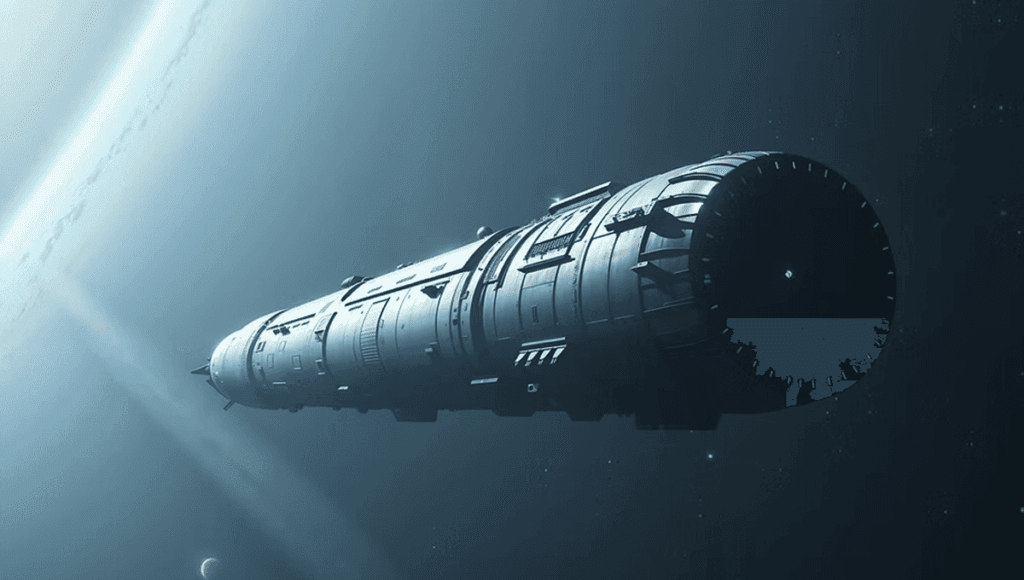The article discusses the challenges of interstellar travel, focusing on the concept of “generation ships” as a solution for sending humans to distant star systems, like Alpha Centauri, within a human lifespan. The competition, Project Hyperion, resulted in a winning design called “Chrysalis,” which is envisioned as a large cylindrical spaceship capable of supporting a small society across generations.
Chrysalis is designed to be 58 km long and weighs about 2.4 billion tons, crafted at Lagrange Point 1 for efficient construction. The ship utilizes a rotating interior to generate artificial gravity, essential for the well-being of its inhabitants. The design reflects considerations of psychological impacts and societal structure for future residents, who may spend decades adapting before departure.
Notably, the ship integrates humans, robots, and AI in decision-making processes, fostering a cohesive environment. The design team highlighted the significance of psychological well-being and the unique identity of future generations living in deep space. The project was praised for its innovative solutions to radiation issues and its storytelling quality, reinforcing the importance of preparing for humanity’s potential future beyond Earth.
Source link


